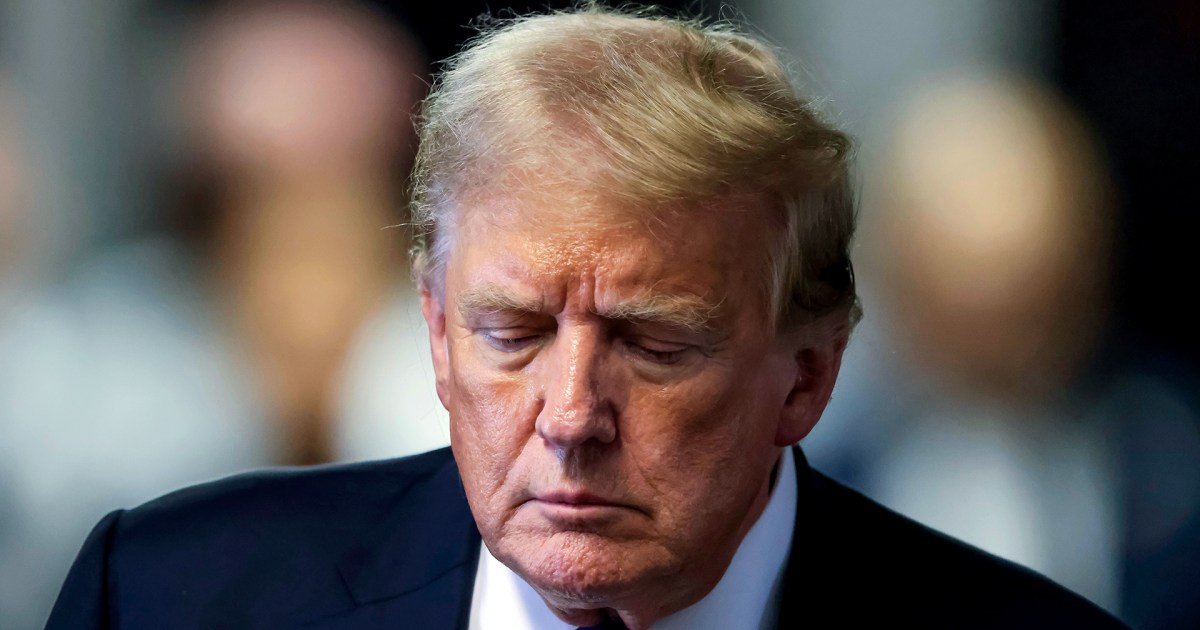Trump's Conviction: A Historic Legal and Political Ramification
Former President Donald Trump has made headlines as the first former US president to be convicted of a crime. A New York jury found Trump guilty on all 34 charges of falsifying business records in a trial centered on hush money payments made during the 2016 presidential election. This unprecedented verdict raises numerous questions about Trump's political future, his legal standing, and the potential fallout from this historic case.
The trial, which concluded with the jury delivering a unanimous verdict after nearly twelve hours of deliberation, has significant implications. Trump’s defense argued that the payments to Stormy Daniels were legitimate legal fees, but the prosecution successfully convinced the jury that Trump manipulated documents to conceal the true nature of these transactions, violating campaign finance laws.
Impact on Future Elections and Campaign
Despite the conviction, Trump remains a formidable figure within the Republican Party and has voiced his intent to continue his campaign for the 2024 presidential election. Legal experts suggest that Trump is unlikely to receive a harsh prison sentence due to his age and lack of prior criminal history. However, the final sentence, to be announced by Judge Juan Merchan on July 11, remains a topic of speculation. The maximum penalty for the offenses could be up to four years in prison, although probation or fines are also possible outcomes.
No law prevents Trump from running for president or appearing on the ballot, even as a convicted felon. His right to vote will depend on the state laws where he resides and whether he will be serving any prison sentence at the time of the election. The U.S. Constitution requires presidential candidates to be natural-born citizens, at least 35 years old, and have lived in the US for at least 14 years, criteria that Trump continues to meet despite his convictions.
The case continues to stir political debates and could potentially influence voter sentiment. While Trump’s critics view the verdict as a win for justice, his supporters see it as a politically motivated attack. Trump has vehemently decried the verdict, calling it a 'rigged process' and accusing the Biden administration of orchestrating a smear campaign against him. He aims to leverage his legal battles to galvanize his base, portraying himself as a martyr of a biased legal system. Recent polls suggest that Trump's legal woes might not significantly impact his core support base.
In a related development, Jenna Ellis, a former attorney for Trump, has had her law license suspended in Colorado following her guilty plea in a case related to election interference in Georgia. Ellis, who played a part in advocating for Trump's election fraud claims post-2020 elections, expressed regret for her actions and acknowledged the harm caused by promoting misinformation. This case underscores the continuing legal repercussions for individuals involved in Trump's efforts to challenge the election outcome.
- Ellis's suspension came after she admitted to aiding and abetting false statements during the tumultuous post-2020 election period. Unlike Trump, she has chosen to cooperate with prosecutors and has openly regretted her involvement. This development emphasizes the personal and professional costs for those who supported Trump's election fraud narratives.
- Trump's conviction might set a precedent in American legal and political history, but it also opens a debate on the intersection of legal accountability and political ambition. It highlights the resilience of political figures to rebuild their narratives despite legal setbacks and the role of public opinion in shaping political destiny. As America braces for the 2024 election, the full impact of Trump's legal troubles on his campaign and the wider political landscape remains to be seen.






